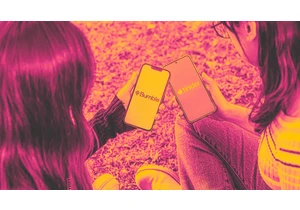Language-learning app Duolingo just released its second annual Language Report, and two things are clear: Netflix and TikTok really have an international grip on the culture, and people are deep in their feelings about family. Among several highlights from the survey, 70% said that a TV show could motivate them to learn a language. The most commonly referenced shows were Money Heist (Spanish), 37%; Squid Game (Korean), 28%; Emily in Paris (French), 20%; Dark (German), 16%; and Lupin (French), 16%. These studies also present new marketing strategies for Duolingo, including a campaign launching around season two of Emily in Paris. The company intends to promote the idea that you should not do what Emily does: go to France without knowing any French.
Duolingo is also putting more effort into its TikTok account after learning that the app is another major factor in onboarding new language learners, with 29% saying watching videos in another language could interest them enough to learn it. That number jumps to 40% among Gen Z. The intent is not to teach languages on the popular entertainment platform but to engage users in a clever way that inspires them to check out Duolingo.
@duolingo every time you open Google Translate, I lose a feather. #duolingo #swiftok #enchanted #languagelearning #trend #brandtok #comedy ♬ Enchanted Taylor Swift – Kaylen
Another big factor pushing people to learn new languages has been an increasing desire to learn about family heritage. Among the 42% who started learning a new language at the onset of the pandemic, 70% noted that it was out of a desire to connect with their family heritage, ancestry, or culture. “I think it’s a reflection of what has been happening in our culture for a long time that now we’re seeing in language-learning data,” says Cindy Blanco, senior learning scientist at Duolingo. “People, especially younger people, are becoming more and more interested in their own stories, their own family histories.” According to Duolingo’s report, 27% who started new language-learning efforts have a family member from a culture that speaks a language considered Indigenous or understudied, e.g., Yiddish, Scottish Gaelic, and Navajo, which Duolingo currently offers. Cindy Blanco [Photo: courtesy of Duolingo]And the company is expanding its course selection to include Haitian Creole, Zulu, and Xhosa, the latter of which has clicking sounds, which Duolingo hasn’t tackled in its courses before. “Some of them are really challenging, but it’s a good challenge,” Blanco says. “We know that a lot of our learners are probably going to be coming to the Xhosa course without having experienced either listening or producing a language with clicks,” Blanco says. “So we’ve got to figure out how to build exercises that really get learners’ attention onto these important sounds and how they’re used. And as a linguist, I love that. That’s a really good challenge. It’s good for us to try and figure that out.” One might wonder what practical business sense there is in investing in developing new languages that may interest a smaller number of people compared to, say, doubling down on Japanese or Korean, which have become the fastest-growing languages on Duolingo. Blanco notes that the app has introduced new features to better accommodate Asian reading and writing systems, but those are languages attached to countries with a more visible presence on the global stage. However, she explains, that’s exactly why Duolingo wants to incorporate understudied languages, regardless of the number of learners they may pull in. “Value is subjective,” she says. “It is part of our mission, the way we think about equity in language learning. The value isn’t in numbers of learners or numbers of subscribers. It really is in helping some of these communities preserve their languages.”
Connectez-vous pour ajouter un commentaire
Autres messages de ce groupe

I don’t know about you, but practically every time my phone rings, my heart rate starts skyrocketing.
Who the hell could be calling me? What in the world do they want? And why, for the l

As the clock ticks closer to a U.S. ban on TikTok, small businesses are bracing for the loss of an app that has, in many cases, proven vital for their success.
Millions of small business

Greg Epstein is the Humanist chaplain at Harvard University and at MIT, where he advises students, faculty, and staff members on ethical and existential concerns from a humanist perspective. He ha

Apple gives every iCloud user 5GB of free storage space. This storage space can be used for any

Apple, which has built its brand on data privacy, settled a class action suit this week in w

If Spotify Wrapped left you underwhelmed this year, TikTok’s “Dating Wrapped” trend is here to sp

Dating apps are gearing up for their busiest day of the year: Dating Sunday.
This landmark day in the dating world always lands on the first Sunday of January. The idea is that sin
